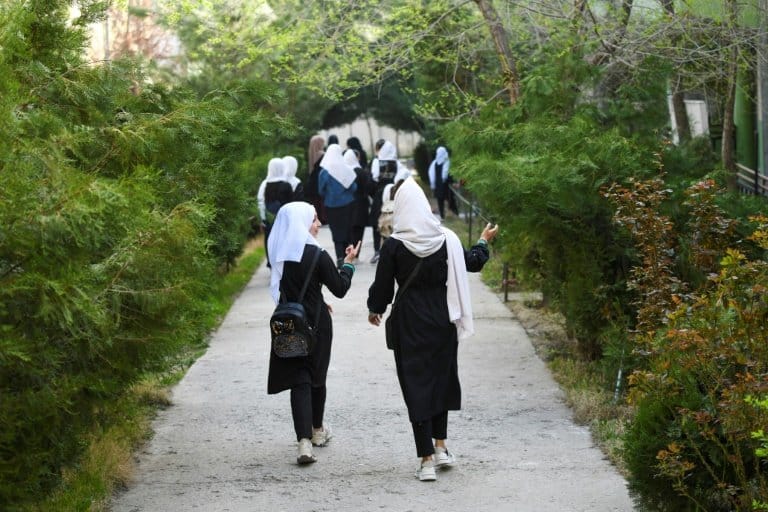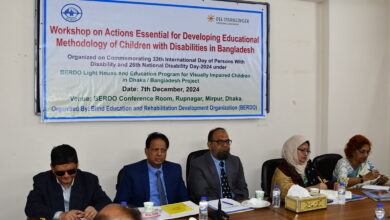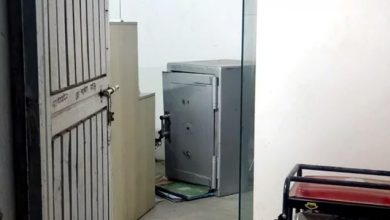Heartbreak as Afghan girls ordered home just hours after schools reopen

The Taliban ordered girls’ secondary schools in Afghanistan to shut Wednesday just hours after they reopened, sparking heartbreak and confusion over the policy reversal by the hardline Islamist group.
The U-turn was announced after thousands of girls resumed lessons for the first time since August, when the Taliban seized control of the country and imposed harsh restrictions on women.
The education ministry offered no coherent explanation even as officials held a ceremony in the capital to mark the start of the academic year, saying it was a matter for the country’s leadership.
“We have some cultural restrictions… but the main spokesmen of the Islamic Emirate will offer better clarifications.”

Girls had to leave their schools following the Taliban’s order to close them / © AFP
A Taliban source told AFP the decision came after a meeting late Tuesday by senior officials in the southern city of Kandahar, the movement’s de facto power centre and conservative spiritual heartland.
Wednesday’s date for girls to resume school had been announced weeks earlier by the ministry, with spokesman Rayan saying the Taliban had a “responsibility to provide education and other facilities to our students”.
They insisted that pupils aged 12 to 19 would be segregated — even though most Afghan schools are already same-sex — and would operate according to Islamic principles.
Crestfallen girls at Zarghona High School in the capital, Kabul, tearfully packed up their belongings after teachers halted the lesson.
“I see my students crying and reluctant to leave classes,” said Palwasha, a teacher at Omara Khan girls’ school in Kabul.
“It is very painful to see them crying.”
US special envoy to Afghanistan Rina Amiri said the move “weakens confidence in the Taliban commitments”.
It “further dashes the hopes of families for a better future for their daughters,” she tweeted.
– ‘Ideological differences’ –
Afghan expert Andrew Watkins, of the US Institute of Peace, said the about-face reflected a rift in the Taliban leadership.
“This last-minute change appears to be driven by ideological differences in the movement… about how girls returning to school will be perceived by their followers,” he told AFP.
There were fears that, after seizing control, the Taliban would shut down all formal education for girls — as they did during their first stint in power from 1996 to 2001.

Wednesday’s date for girls to resume school had been announced weeks earlier by the ministry / © AFP
At the time of the takeover, schools were closed because of the Covid-19 pandemic. Boys and younger girls were allowed to resume classes two months later, raising hopes they had softened their stance.
The international community has made the right to education for all a sticking point in negotiations over aid and recognition of the new Taliban regime, with several nations and organisations offering to pay teachers.
Students from Sadar Kabuli Girls High School staged protests after they were told to leave, witnesses and activists said.
“They left after the Taliban came and told them to go home. It was a peaceful protest,” a shopkeeper in the area said.
– Slew of restrictions –
The Taliban have imposed a slew of restrictions on women, effectively banning them from many government jobs, policing what they wear and preventing them from travelling outside of their cities alone.
They have also detained several women’s rights activists.
Even if schools do reopen fully, barriers to girls returning to education remain, with many families suspicious of the Taliban and reluctant to allow their daughters outside.
Others see little point in girls learning at all.
Women have been barred from returning to most government jobs since the Taliban’s return and there is little productive private-sector employment in a country with a crippled economy.
“Those girls who have finished their education have ended up sitting at home and their future is uncertain,” said Heela Haya, 20, from Kandahar, who decided to quit school.
“What will be our future?”
It is common for Afghan pupils to miss chunks of the school year as a result of poverty or conflict, and some continue lessons well into their late teens or early twenties.
Human Rights Watch also raised the issue of the few avenues girls are given to apply their education.
“Why would you and your family make huge sacrifices for you to study if you can never have the career you dreamed of?” said Sahar Fetrat, an assistant researcher with the group.





